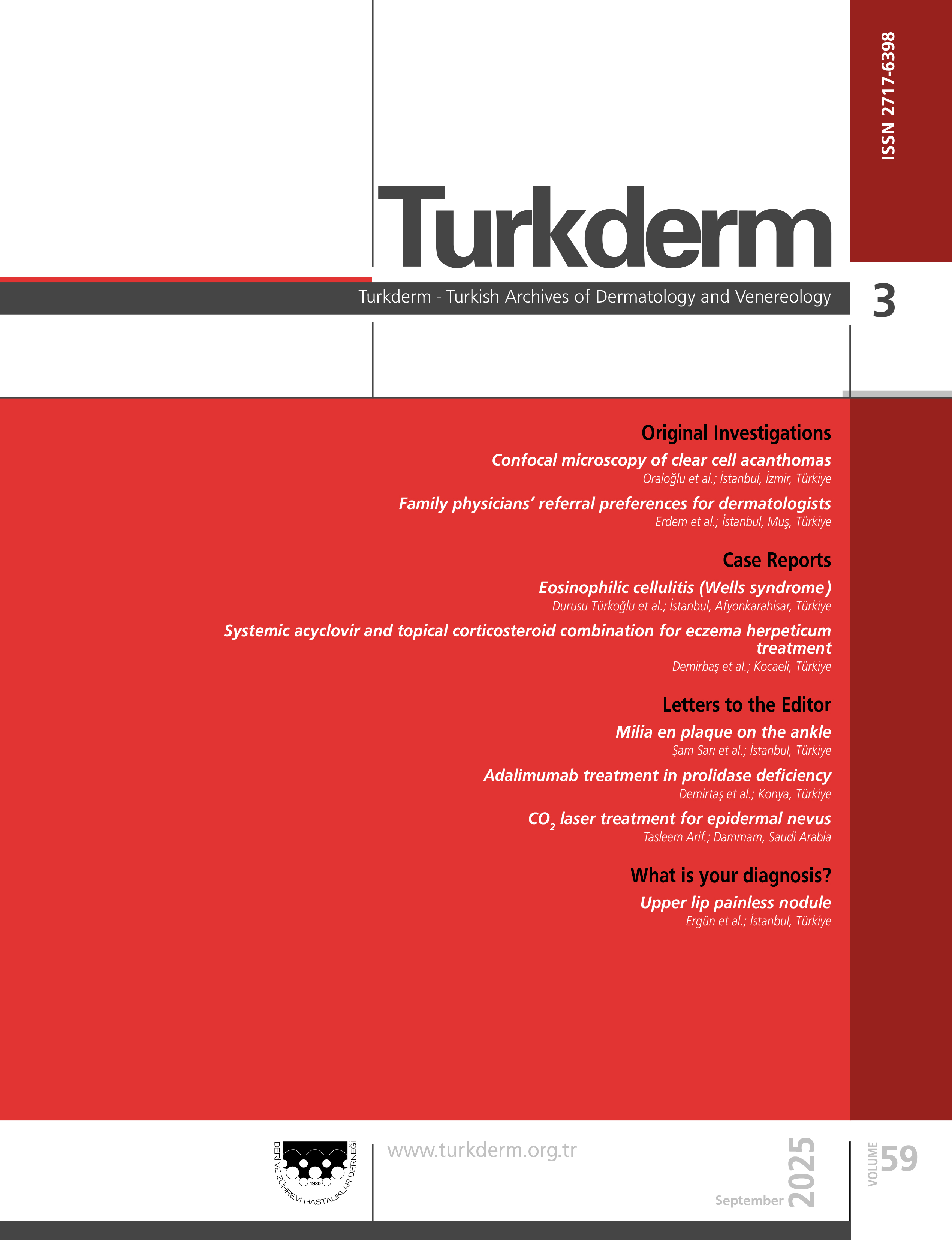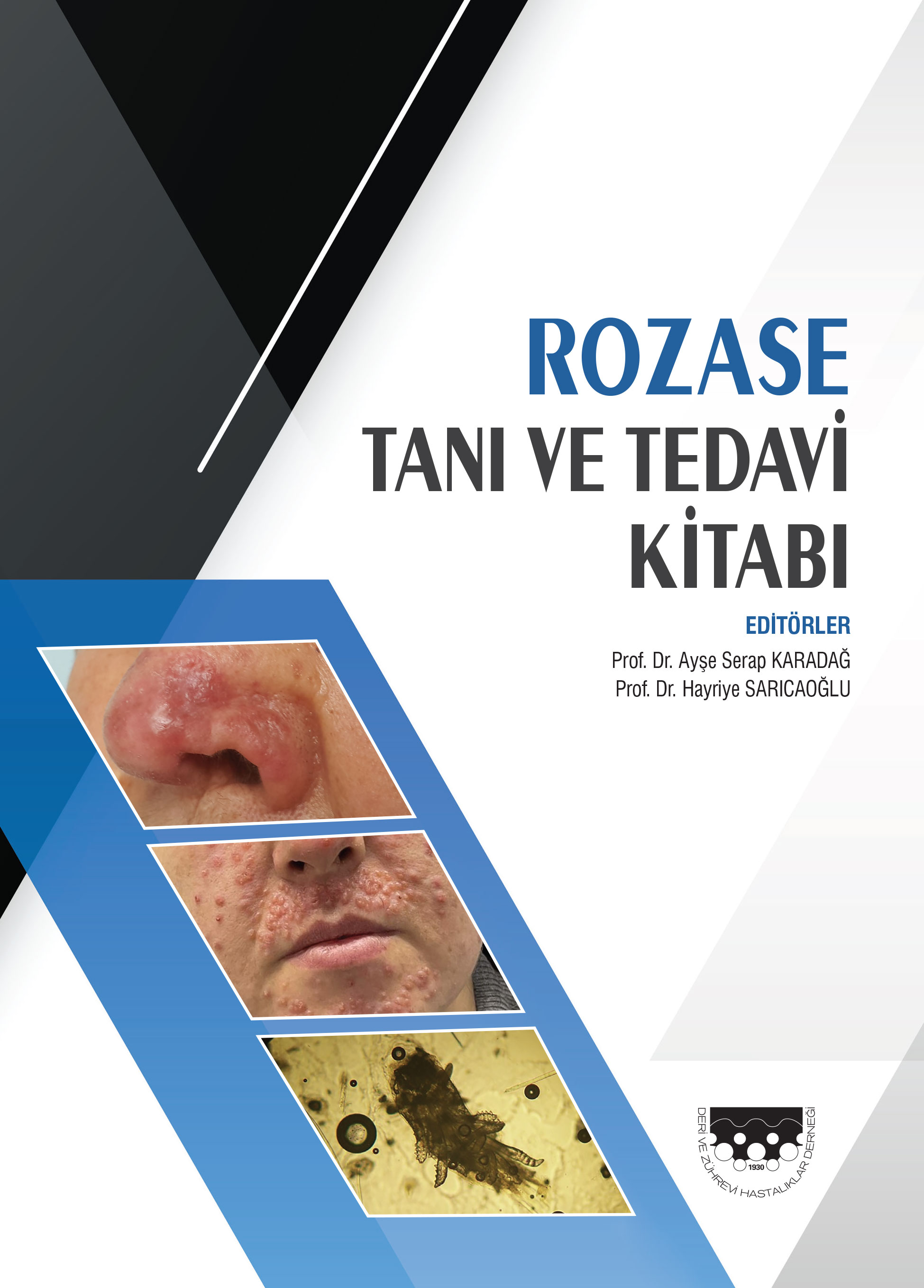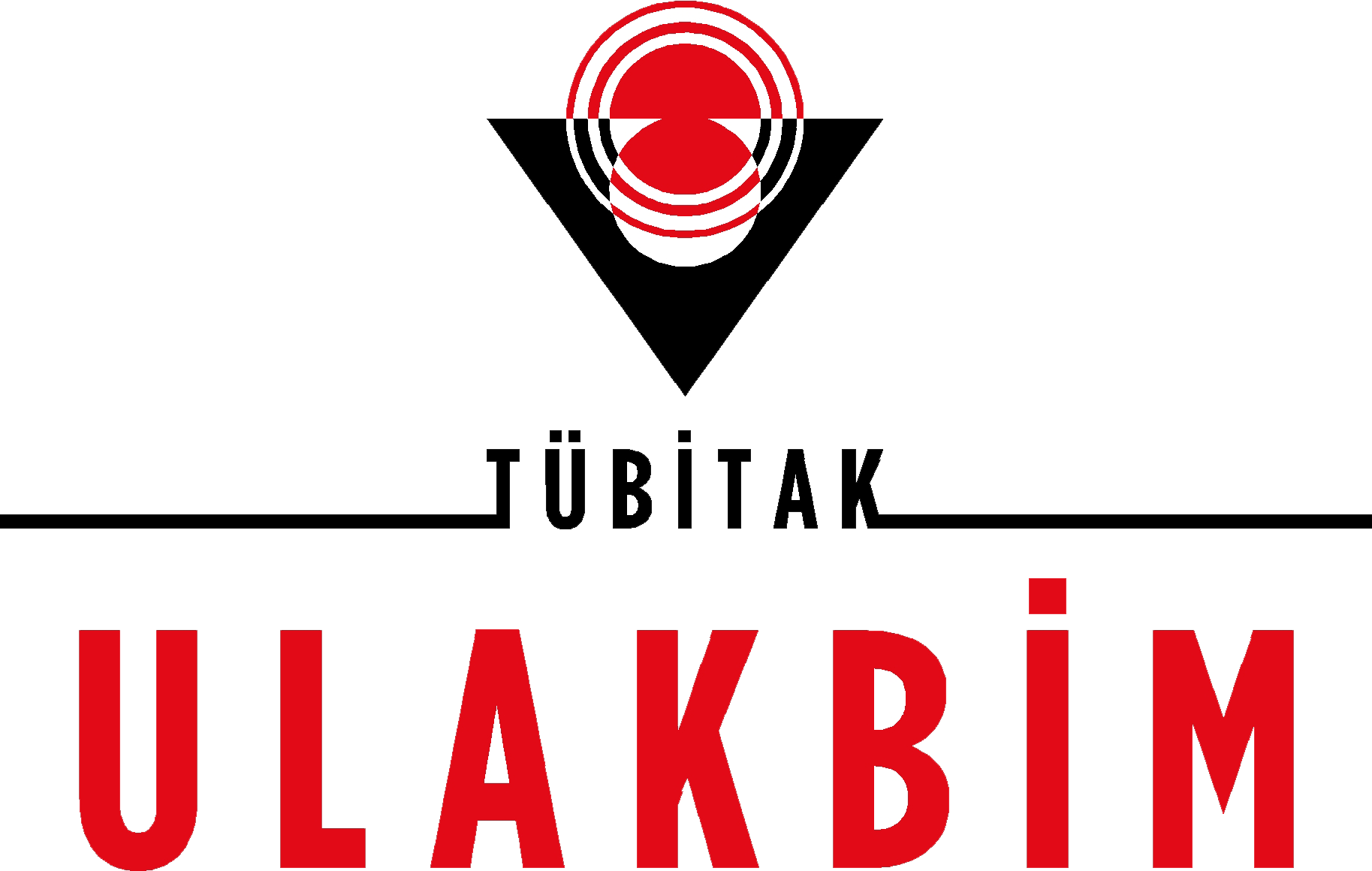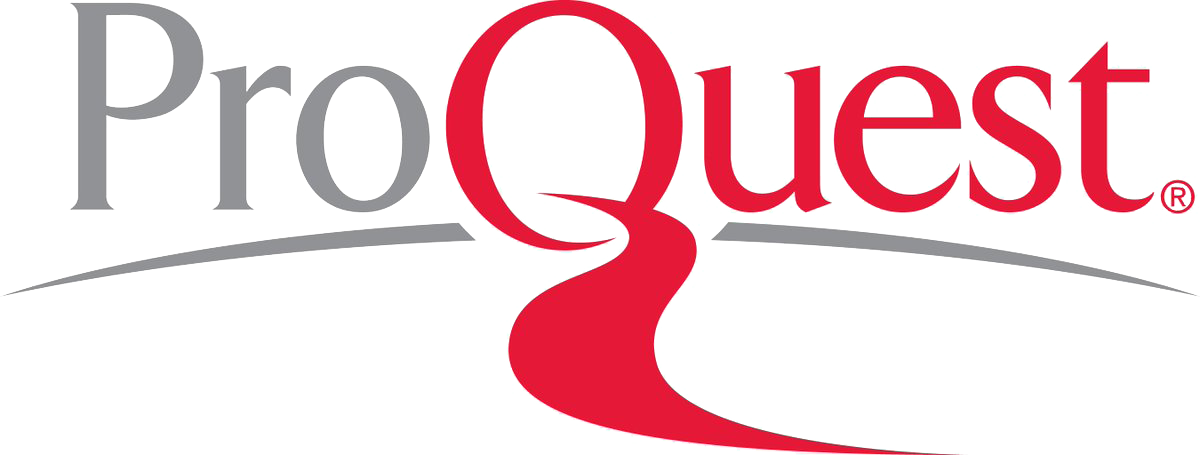Secukinumab in psoriasis: A single-center experience
Esra Ağaoğlu1, Hilal Kaya Erdoğan2, Ersoy Acer2, Zeynep Nurhan Saraçoğlu2, Muzaffer Bilgin31Kars Harakani State Hospital, Clinic of Dermatology, Kars, Turkey2Eskişehir Osmangazi University Faculty of Medicine, Department of Dermatology, Eskişehir, Turkey
3Eskişehir Osmangazi University Faculty of Medicine, Department of Biostatistics, Eskişehir, Turkey
Background and Design: Several randomized clinical trials demonstrated the safety and efficacy of secukinumab in the systemic treatment of moderate-severe psoriasis; however, real-life data is limited. Thus, this study aimed to assess the efficacy and safety of secukinumab in patients with psoriasis.
Materials and Methods: In this study, 32 patients treated with secukinumab were retrospectively reviewed. The efficacy of secukinumab was evaluated as psoriasis area and severity index (PASI) 50, 75, and 90 response rates at 16., 24., and 36. weeks, respectively. Side effects of secukinumab treatment were recorded.
Results: The mean PASI of 32 patients before treatment was 12.38±6.49, which decreased to 1.96, 1.85, and 3.01, after 16, 24, and 36 weeks, respectively. At 16 weeks of treatment, 83.3% of patients reached PASI 50, 70.0% had PASI 75, and 50.0% had PASI 90 response rates. At 16, 24, and 36 weeks, PASI 50, 75, and 90 responses were generally higher in patients naive to biologic than the non-naive; however, differences were not statistically significant (p>0.05). Secukinumab was discontinued in 7 (21.9%) patients during the treatment. Of the 7 patients, 5 (15.6%) patients failed to respond to secukinumab and 2 (6.2%) developed various side effects. Oral candidiasis was observed in 4 (12.5%) patients, which was the most common side effect of secukinumab treatment.
Conclusion: Secukinumab is an effective and safe treatment option in patients with psoriasis. The secukinumab efficacy in clinical practice is higher in patients naive to biologic.
Psoriaziste sekukinumab: Tek merkez deneyimi
Esra Ağaoğlu1, Hilal Kaya Erdoğan2, Ersoy Acer2, Zeynep Nurhan Saraçoğlu2, Muzaffer Bilgin31Kars Harakani Devlet Hastanesi, Dermatoloji Kliniği, Kars, Türkiye2Eskişehir Osmangazi Üniversitesi Tıp Fakültesi, Dermatoloji Ana Bilim Dalı, Eskişehir, Türkiye
3Eskişehir Osmangazi Üniversitesi Tıp Fakültesi, Bioistatistik Ana Bilim Dalı, Eskişehir, Türkiye
Amaç: Birçok randomize klinik çalışma, orta-şiddetli psoriazisin sistemik tedavisinde sekukinumabın etkinliği ve güvenilirliğini ortaya koyarken, gerçek yaşam verileri sınırlıdır. Çalışmamızın amacı psoriaziste sekukinumabın etkinliği ve güvenilirliğini değerlendirmektir.
Gereç ve Yöntem: Çalışmada sekukinumab tedavisi alan 32 hasta retrospektif olarak incelendi. Sekukinumabın etkinliği tedavinin 16., 24. ve 36. haftalarında psoriazis alan şiddet indeksi (PAŞİ) 50, 75, 90 yanıt oranları ile değerlendirildi. Sekukinumab tedavisinin yan etkileri kaydedildi.
Bulgular: Otuz iki hastanın sekukinumab tedavisi öncesi PAŞİ ortalaması 12,38±6,49 olup tedavinin 16., 24. ve 36. haftalarında sırasıyla; 1,96, 1,85 ve 3,1e geriledi. Tedavinin 16. haftasında hastaların %83,3ü PAŞİ 50ye ulaşırken %70inde PAŞİ 75 ve %50sinde PAŞİ 90 yanıt oranları elde edildi. Tedavinin 16., 24. ve 36. haftalarında, PAŞİ 50, 75 ve 90 yanıtları, biyolojik-naif hastalarda, biyolojik-naif olmayanlara göre daha yüksekti, ancak istatistiksel olarak anlamlı bir fark saptanamadı (p>0,05). Beş (%15,6) hastada yetersiz klinik yanıt, 2 (%6,2) hastada ise tedaviye bağlı yan etkiler nedeniyle toplam 7 (%21,9) hastada tedavi kesildi. Dört (%12,5) hastada görülen oral kandidiyazis sekukinumaba bağlı en sık yan etki olarak kaydedildi.
Sonuç: Sekukinumab, orta-şiddetli psoriazis hastalarında etkili ve güvenli bir tedavi seçeneğidir. Sekukinumabın gerçek yaşam verisi olarak etkinliği biyolojik-naif hastalarda daha yüksek olabilir.
Manuscript Language: English























